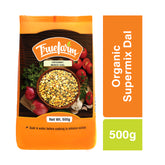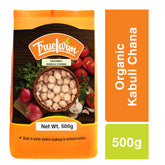Organic Farming: Saving the Planet One Harvest at a Time!
In recent years, there has been a growing movement towards organic farming as an alternative to conventional agricultural practices. Organic farming not only promotes healthier food production but also offers numerous benefits to our environment. By harnessing the power of natural processes and reducing reliance on synthetic inputs, organic farming has the potential to mitigate climate change, protect biodiversity, conserve water resources, and promote sustainable land management. Join us as we explore the key benefits of organic farming on the environment in this blog post.
Soil Health and Fertility:
Organic farming prioritises the health of the soil, considering it as a living entity. Instead of relying on chemical fertilisers, organic farmers adopt practices that enhance soil fertility naturally. The use of organic matter such as compost, green manure, and crop rotation helps improve soil structure, nutrient content, and water-holding capacity. By nurturing the soil ecosystem, organic farming supports beneficial soil organisms like earthworms, fungi, and bacteria, contributing to long-term soil health and sustainability.
Biodiversity Conservation:
One of the greatest advantages of organic farming is its positive impact on biodiversity. By avoiding the use of synthetic pesticides and genetically modified organisms (GMOs), organic farmers create a habitat that supports a wide array of plant and animal species. This diverse ecosystem promotes pollination, natural pest control, and disease suppression, reducing the need for chemical interventions. Organic farms often provide refuge for endangered species, birds, and beneficial insects, fostering a harmonious coexistence between agriculture and nature.
Climate Change Mitigation:
Organic farming plays a crucial role in mitigating climate change by reducing greenhouse gas emissions and promoting carbon sequestration. Synthetic fertilisers and intensive farming methods in conventional agriculture contribute significantly to carbon dioxide emissions and other greenhouse gases. Conversely, organic farming practices such as cover cropping, agroforestry, and the use of organic fertilisers increase soil organic matter, promoting carbon sequestration in the form of stable soil carbon. Additionally, organic farming methods often require less energy consumption and fossil fuel use, further reducing the carbon footprint of agricultural practices.
Water Conservation:
Water scarcity is a growing concern worldwide, making efficient water management in agriculture crucial. Organic farming employs water-conserving practices, such as mulching, drip irrigation, and crop rotation, to optimise water use efficiency. By enhancing soil structure and water-holding capacity, organic farms reduce soil erosion and improve water infiltration, leading to less water runoff and better groundwater recharge. Additionally, the avoidance of synthetic pesticides and fertilisers in organic farming prevents the contamination of water bodies, safeguarding aquatic ecosystems and human health.
Preservation of Human Health:
Choosing organic products not only benefits the environment but also promotes human health. Organic farming prohibits the use of synthetic pesticides, herbicides, and genetically modified organisms, which can have adverse effects on human health. Consuming organic food reduces exposure to potentially harmful chemicals, ensuring a safer and healthier diet for individuals and communities. Furthermore, organic farming practices often prioritise animal welfare, ensuring the production of high-quality organic meat, eggs, and dairy products.
Cultivating a Greener Earth
Organic farming is not just a trend but a powerful solution for promoting sustainable agriculture and protecting our environment. From enhancing soil health and conserving water resources to mitigating climate change and preserving biodiversity, the benefits of organic farming are far-reaching and impactful. By supporting organic farming practices and choosing organic products, we can contribute to a greener and more sustainable future for generations to come. Together, let's cultivate a healthier planet through organic farming.















